We explore our home price projections with real examples from our Core Market Model, and discuss broader financial market issues.
The Great Debate On China Coming On Tuesday…
Digital Finance Analytics (DFA) Blog
"Intelligent Insight"
We explore our home price projections with real examples from our Core Market Model, and discuss broader financial market issues.
The Great Debate On China Coming On Tuesday…
Domain released their preliminary results for today as the economic slowdown continues to hit transactions. They warn that “From Thursday July 9 the Victorian government placed a ban on public real estate auctions as part of social distancing measures to slow the spread of COVID-19. The number of auctions withdrawn in the immediate weeks following the ban are likely to be higher than normal”.

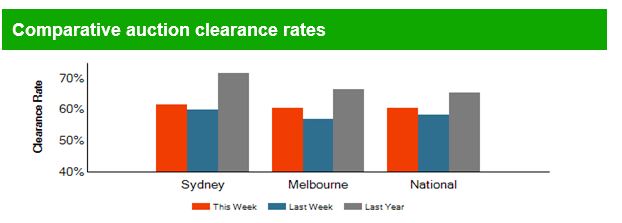
Canberra listed 34 auctions, reported 29 with 24 sold, 4 withdrawn and 5 passed in to give a Domain clearance of 73%.
Brisbane listed 58 auctions, reported 31 with 17 sold, 9 withdrawn and 14 passed in give a Domain clearance of 43%.
Adelaide listed 27 auctions, reported 15 with 11 sold, 6 withdrawn and 4 passed in to give a Domain clearance of 52%.
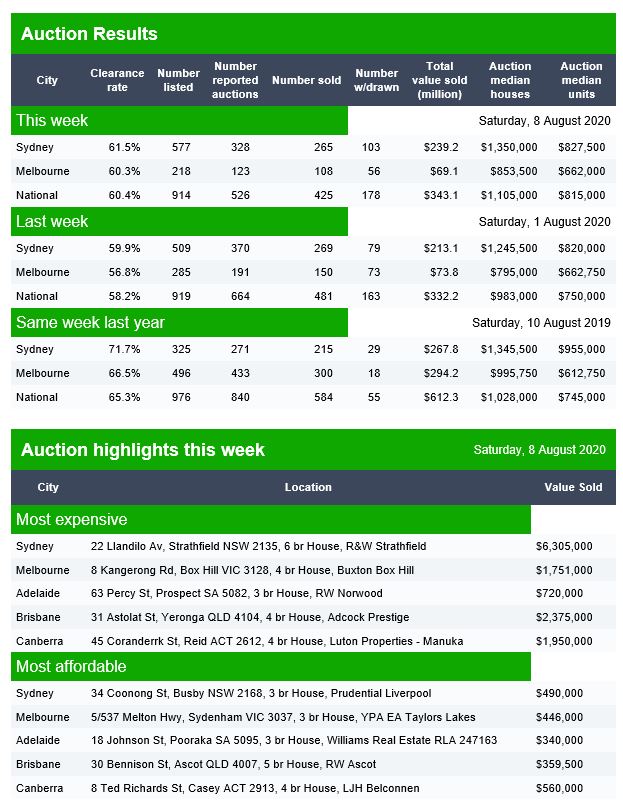
DFA has released our latest results from our rolling 52,000 household surveys. As a result of the economic slowdown (which was already underway before COVID) and exacerbated by the COVID restrictions, more households are falling into financial stress.
We define stress in cash flow terms – money in and money out – for both rental and mortgage stress, with those in negative cash flow flagged as stressed. Investor stress is assessed by different means, including negative cash flow, extended vacancy rates, intention to sell and other factors. In the round while the various Government support schemes, and repayment holidays, plus rental freezes are assisting, the downward trajectory in finances is clear, and explains the rising stress.
Mortgage stress rose to its highest level ever at 40.2 of households. We expect this to climb higher as support is moderated, and banks have hard conversations about recommencing repayments. Morgan Stanley commissioned a survey of mortgagors as part of some research on the impact of the coronavirus, and found that 55 per cent of them have received some form of income support. Household debt ratios continue to rise (thanks also to the capitalised interest and repayment holidays).
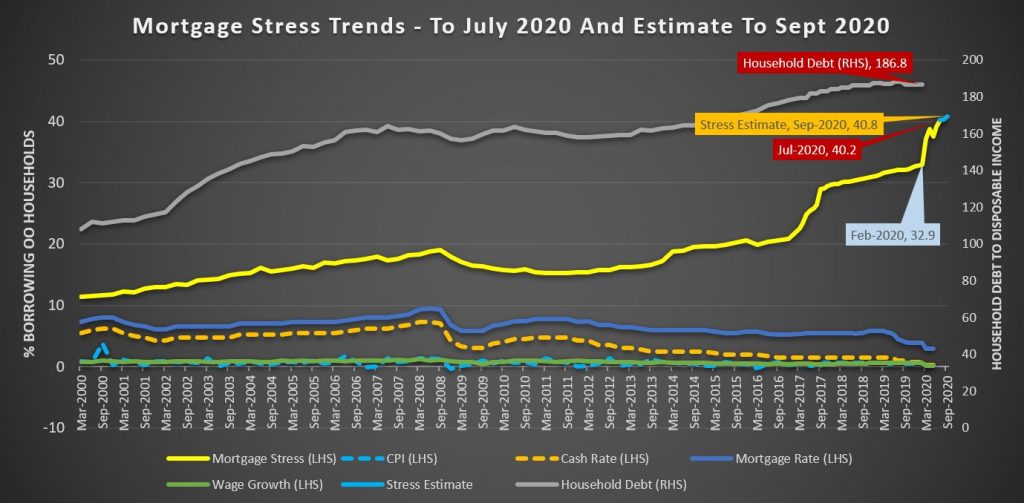
Two states saw a slight decline in the month, TAS and NT, as restrictions were somewhat eased,though both states have the highest stress percentages. But households in VIC rose by more than 15,000 from last month and NSW by more than 12,000. Overall more than 1.5 million households are impacted, up from 1.45 million last month.
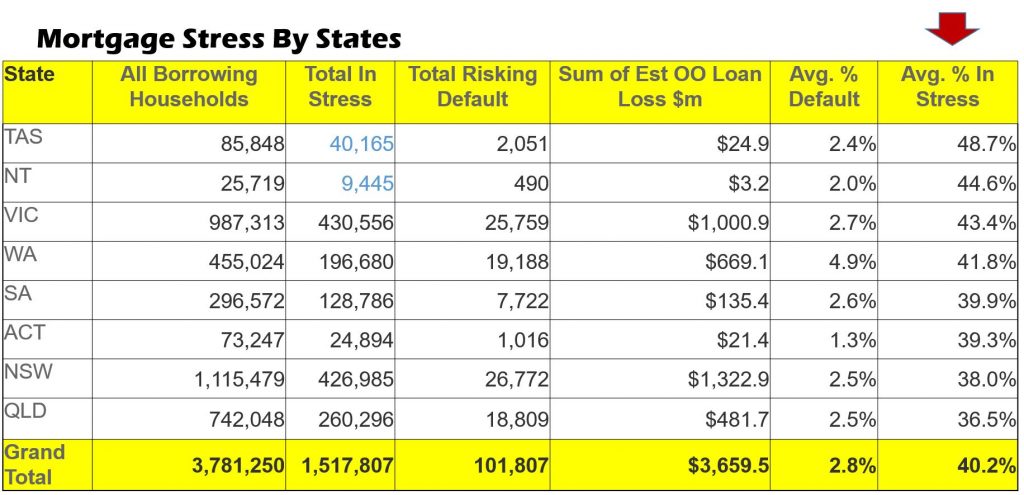
Across the segments, Young Growing Families are most exposed – this includes recent cohorts of first time buyers. Affluent households continue to be impacted, as unemployment is becoming structural. The RBA recently flagged an official rate of ~10% later in the year. The true rate is significantly higher.
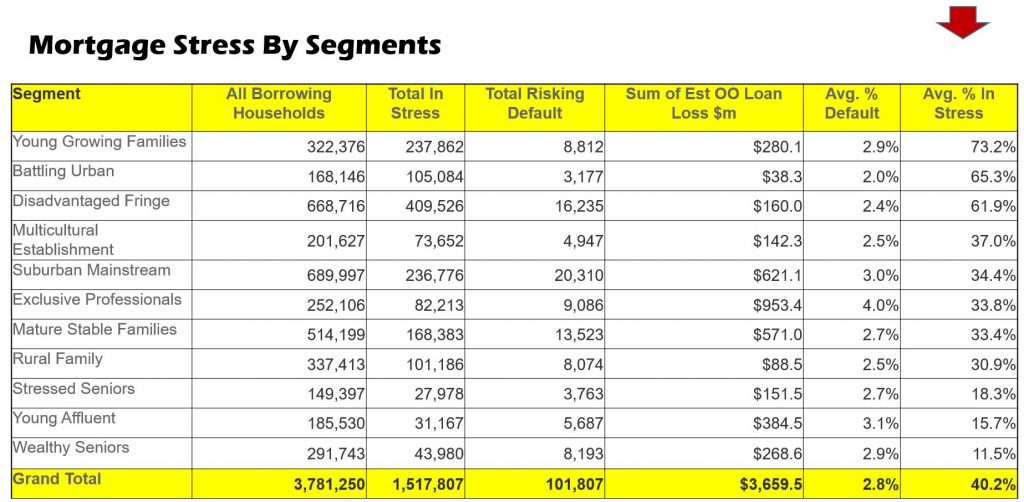
Looking in more detail at the post codes with the largest counts, many are fringe areas where there are many new estates, large houses on small lots driven by the construction boom. However a number of regional centres are also impacted. VIC is particularly exposed.
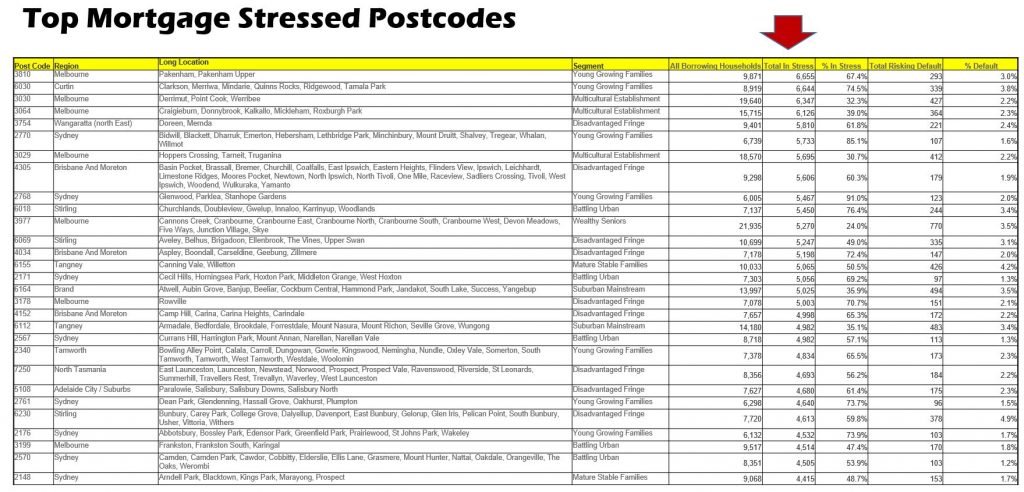
Turning to rental stress, we see a rise of tenants struggling with repayments. There is confusion for some as to whether their rents are on hold, or simply accruing. We are seeing more households planning to move back with family and friends. Stress is highest in NSW and VIC, with a significant spike in the largest states.
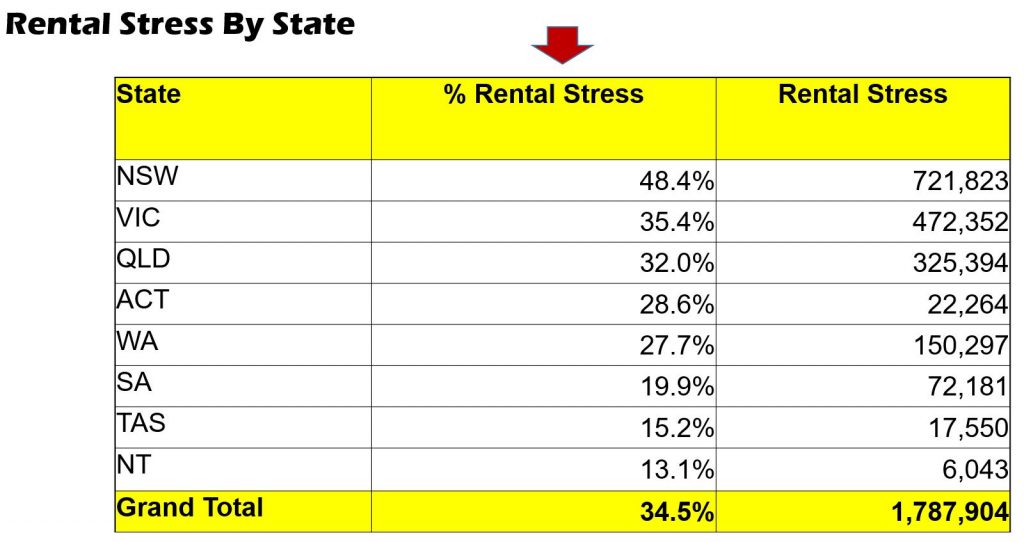
Across the segments, Young Affluent and Multicultural Groups are most exposed, linked with both students suddenly without part-time work, and the shrinking of the gig economy. However in terms of numbers of stressed renters more mainstream families are caught.
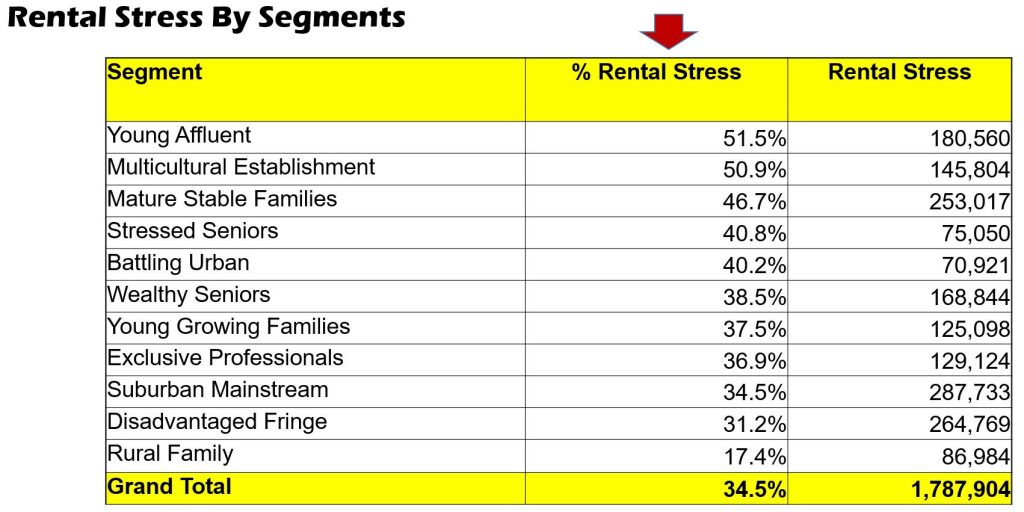
The post code distribution is illuminating, with Melbourne 3000 the standout high risk post code. Then comes both areas of Western Sydney and the Central Coast.
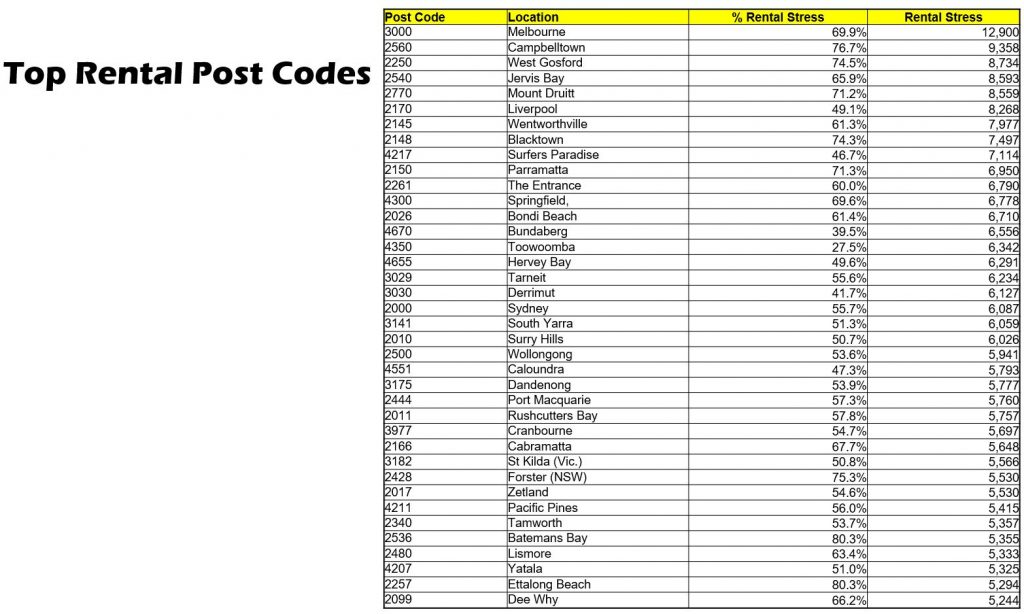
Finally turning to our latest analysis of Stressed Property Investors (based on their place of residence not where their properties are located), we see that 25% of investors are stressed, and overall 12% are actively considering selling. The highest rates of stress are in the NSW and ACT.
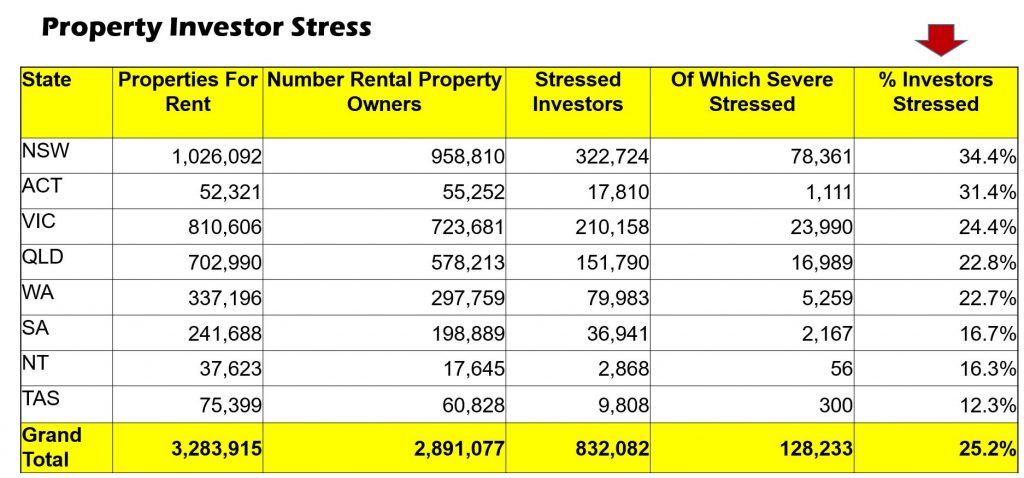
By segment, Young Affluent and Exclusive Professional Property Investors are the most stressed, not least because of the higher proportion of multiple investment property held. Many Young Affluents have multiple (cheaper) high-rise investments which are losing value.
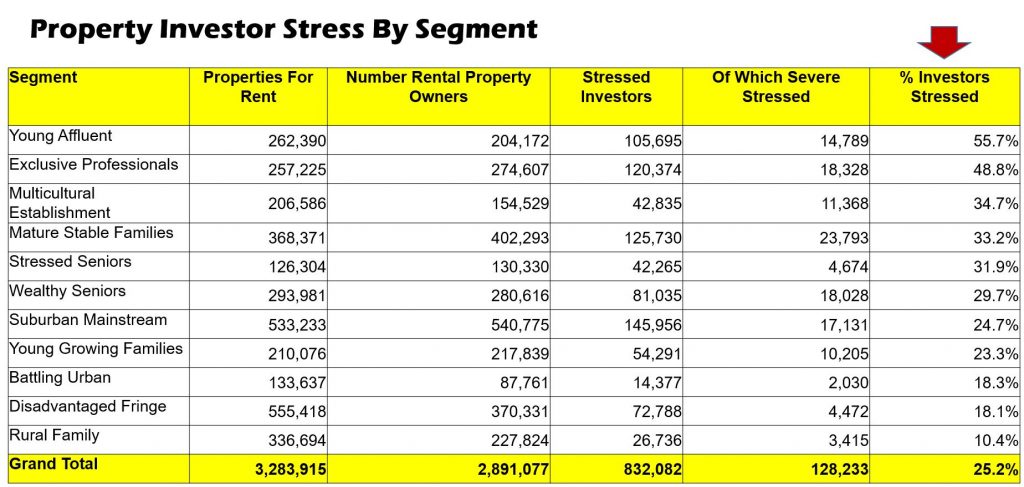
Melbourne 3000 holds the unenviable record for the highest count of stressed Investors (which may well correlate to the high rental stress). Mandurah, in WA, where prices have dropped 38% from peak appears near the top as many Investors have been in difficulty for years, and are unable to sell due to negative equity. Watch and learn….
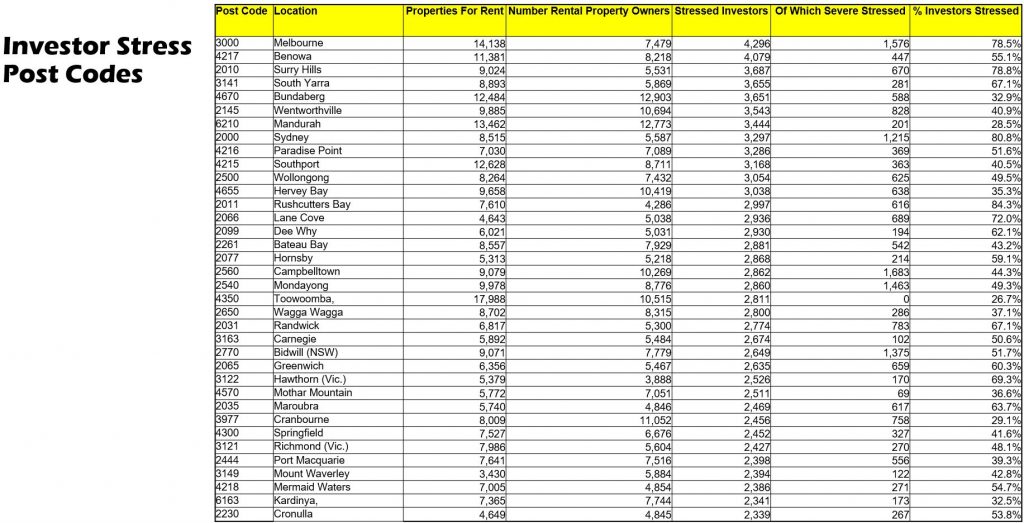
We expect the banks to be tougher on property holders in these high risk areas, compared to others as the discussions about payment restarts after September.
To make the point, here is the full data for 3000 and 4000. The pinch points here are clearly related to investment property.
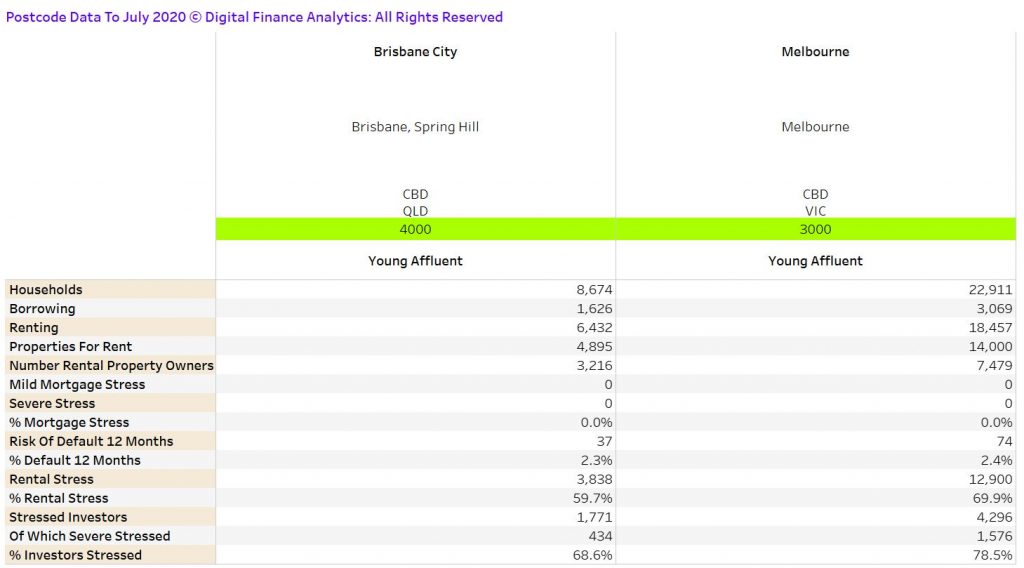
We can provide post code level data for most locations across the country, or you can subscribe via Patreon to receive a full monthly update.
Finally, we discussed this analysis at length on our recent live stream:
Mortgage Broker Chris Bates unpicks the state of the property market and highlights both risks and opportunities at this uncertain time.
Join us on YouTube tonight, and ask a question live. We will also have our post code engine on line.
A critique of a recent Brisbane TV segment, and the latest credit numbers.
My overall presentation about property in Australia. Action is required!
Property Insider Edwin Almeida joined me for our weekly live event yesterday. In the show we looked at the latest trends, and went deep into some individual examples to highlight that property does not always go up. We also unpicked the price indices….
You can watch the edited version here:
The original edition, with live chat replay is also available here:
@justthink1 is Edwin’s twitter handle.
Property Insider Edwin Almeida and I discuss the real trends in property and strip back the hype. You can ask a question live in the YouTube chat.
Today we look at property investing, and more examples of falling property values. Do not believe the hype, property can and does fall, and it is very hard to make a return on an investment at the moment.
DFA Live stream Tuesday:
Nucleus Wealth Property Calculator: https://nucleuswealth.com/property-calculator.
[Note: DFA has not commercial relationship with Nucleus Wealth]